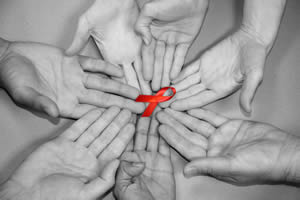
|
November 22, 2011 - Bullied for being gay, Ottawa teen James Hubley took
his own life this fall. The 15-year-old's suicide brought to light the horrors of bullying
and served as yet another reminder that homophobia, rejection experienced when coming
out, and a lack of ready access to comforting and sustaining social networks, play a
huge role in the health of many gay and bisexual men in Canada.
 On World AIDS Day
(December 1) and the thirtieth anniversary since the discovery of HIV/AIDS, it is worth
noting that while great strides have been made in managing the HIV virus, our country
is only beginning to address the various social challenges that jeopardize the health
of gay/ bi men. On World AIDS Day
(December 1) and the thirtieth anniversary since the discovery of HIV/AIDS, it is worth
noting that while great strides have been made in managing the HIV virus, our country
is only beginning to address the various social challenges that jeopardize the health
of gay/ bi men.
While many gay men have found resilient, life-affirming social networks, a number face
feelings of loneliness, depression or isolation. The good news is that a broader, more
social-based approach to gay and bi men's health is being adopted by some health and
social agencies serving LGBTQ2S communities. These agencies may not be great in
number, but the advance of such an approach is a welcome sign - one that
fosters strength and resilience in gay/ bi men and promises to help
turn around some disturbing statistics.
Research shows that gay and bisexual men, compared with their straight counterparts,
often face higher rates of distress and higher rates of attempted suicide. Statistics
Canada has reported that one in 10 hate crimes is motivated by sexual orientation,
and that while 14 per cent of men who identify themselves as heterosexual report
having experienced some form of discrimination, 44 per cent of gay men, and 41
per cent of bisexual men, report experiencing discrimination. In addition, an
emerging area of research is showing that multiple epidemics - bullying,
racial prejudice, depression, substance use, as well as HIV - reinforce
each other and lower the overall health of gay and bisexual men more
than one epidemic might do. Poorer health conditions, related to
these stresses and social challenges, are sometimes linked to
high-risk sex which, in turn, increases the chances of
transmitting HIV, hepatitis C and other STIs.
More innovative programs adopted by health agencies encourage health-promoting behaviours:
monitoring drug use; cultivating sexual creativity (investigating different activities that
are fun, enjoyable but not risking HIV or STIs); and abandoning guilt around the sex that
they enjoy (a kind of 'shamelessness").
Organizations showing leadership in fostering gay men's health from a broader, social
perspective include Montreal-based RÉZO (www.rezosante.org), a community-based
organization for gay and bisexual men whose focus is overall health promotion
as well as the prevention of HIV/AIDS and other STIs; and HiM (Health
Initiative for Men - www.checkhimout.ca), a Vancouver-based agency
dedicated to strengthening the health and well-being of gay men
and including their physical, sexual, social and mental health.
There is also the AIDS Committee of Toronto (www.actoronto.org), an organization that has
grown and evolved since 1983, providing services that empower men, women and youth living
with HIV to achieve self-determination, informed decision-making, independence and
overall well-being, as well as the Poz Prevention program of the Toronto People
with AIDS Foundation (www.pwatoronto.org).
CATIE (www.catie.ca), Canada's source for HIV and hepatitis C
information, convened a national dialogue of gay men in Montréal in March, 2010. Speaking of one of the
social get-togethers his local health agency puts on, one participant said: "Ostensibly, (the program)
is HIV prevention, but none of the topics are related to HIV. So we talk about coming out, we talk
about community, we talk about monogamy versus open relationships. And what's fascinating is that
there's this huge untapped desire for men to come together and talk about these things."
It is that desire among gay/ bi men to talk - to acknowledge and discuss the social realities that at once challenge
and bind them - that an increasing number of social and health agencies are tapping into. That talk, and that sense
of community, is keeping loneliness and depression at bay, and helping to build personal strength and resilience .
###
From Canadian AIDS Treatment Information Exchange (CATIE). For more
information visit CATIE's Information Network at http://www.catie.ca
Source: CATIE: CANADIAN AIDS TREATMENT INFORMATION EXCHANGE
|